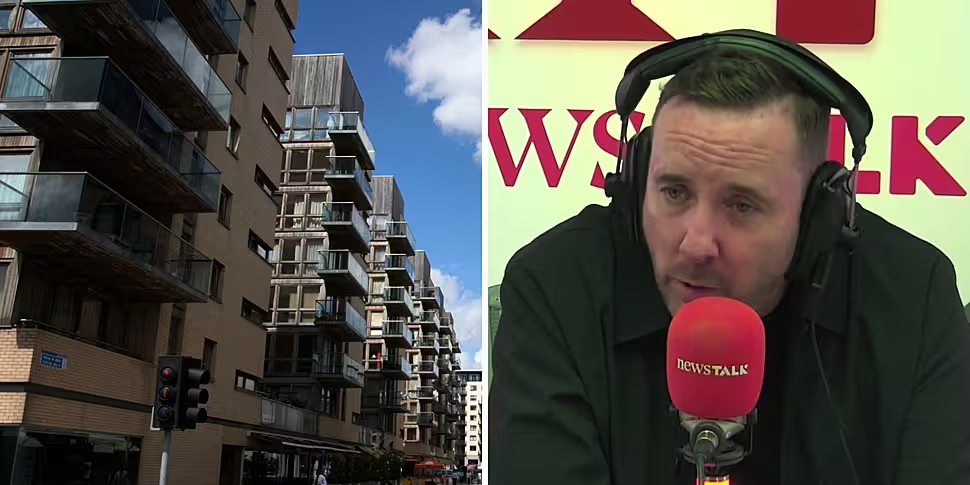The term ‘vulture fund’ has become a derogatory term used by “people who don't really understand the property market”, Shane Coleman has said.
The latest Residential Tenancies Board (RTB) figures show that landlords with more than 100 properties now account for more than 22% of the Dublin’s rental market.
The ‘Profile of the Register’ report shows that the number of private tenancies registered with the RTB has increased in recent years – from around 213,000 in this time last year to 230,000 at the end of March.
Meanwhile, there were over 103,000 private landlords registered in Ireland in March – up from nearly 97,000 this time last year.
Landlords with more than 100 properties account for 11% of Ireland’s rental market – with that figure surging to 22% in Dublin.
Vulture funds
On Newstalk Breakfast this morning, presenter Shane Coleman criticised those who have complained about ‘vulture funds’ buying up properties in Ireland.
He noted that when he started out in journalism, he was constantly writing pieces about how Ireland needed to move away from its reliance on smaller ‘mom and pop’ landlords.
“We need institutional investors,” he said. “They are a better long-term landlord; they invest more in the property and it's better for the tenant.
“I don't like the use of the term vulture fund; I think it's a pejorative term.
“It's a catch-all term that people who don't really understand the property market, kind of, use to dismiss the need for private investment.”
Housing crisis
Shane noted that the most important thing for Ireland in the coming years is to build around 50,000 homes per annum to ensure we have enough housing for our growing population.
“Now that's going to take €20 billion a year, every year, to do it and I'm sorry all that money cannot come from the State,” he said.
“It is going to have to come from institutional investors.
“If we don't have institutional investors, or if you want to use the term vulture funds, if we don't have them, we will not build those houses – it is as simple as that.”
Locked out
Fellow presenter Jonathan Healy argued that by handing over such a large proportion of our property market to investment funds, we are preventing people who may be able to afford to purchase a home from doing so.
“We're disenfranchising a huge proportion of people who are able to afford a mortgage that is akin to their rent,” he said.
“Because people are paying about €2,500 in certain parts of Dublin on rent.
“There's an entire generation being locked in to renting at exorbitant amounts.”
He also pointed out that some of the funds that now own large swathes of Ireland’s property market, “swooped in, in the middle of a crisis” to buy it.
Data from the #RTBProfileOfTheRegister shows private tenancies registered with the RTB have increased for every quarter in the new series, rising from 213,177 at the end of Q2 2023 to 230,006 at the end of Q1 2024.
Find more information here: https://t.co/jCIuUWsOC9 pic.twitter.com/N5yTiXrVs8
— Residential Tenancies Board (@RTBinfo) August 8, 2024
Shane noted that without investment funds, even less housing would have been built during Ireland’s tougher economic times.
“If they haven't come in in the last ten years, nothing would have been built,” he said.
“We would have been in an even worse mess than we are now.
“€20 billion a year is needed to be invested in housing that can't all come from the State.
“We need these investors and we need to stop treating them as pariahs because [otherwise] they won't come and then we will have problems.”
Vultures and cuckoos
Traditionally, a vulture fund would purchase distressed assets from other institutions at a discounted price in the hope of selling them on for a profit when the economy recovers.
Because they purchase at a discount and do not operate under the same restrictions as banks, they are viewed as being in a stronger position to offer write-downs to troubled homeowners - and to move towards eviction when an agreement cannot be reached.
A cuckoo fund meanwhile would purchase large numbers of homes from a developer before they ever hit the open market.
The analogy suggests that, like the cuckoo that pushes other birds’ eggs out of their nests, the funds push first time buyers of the property ladder by depriving them of the chance to purchase the property themselves.
Investment funds that develop properties themselves are generally not given either of these labels.









